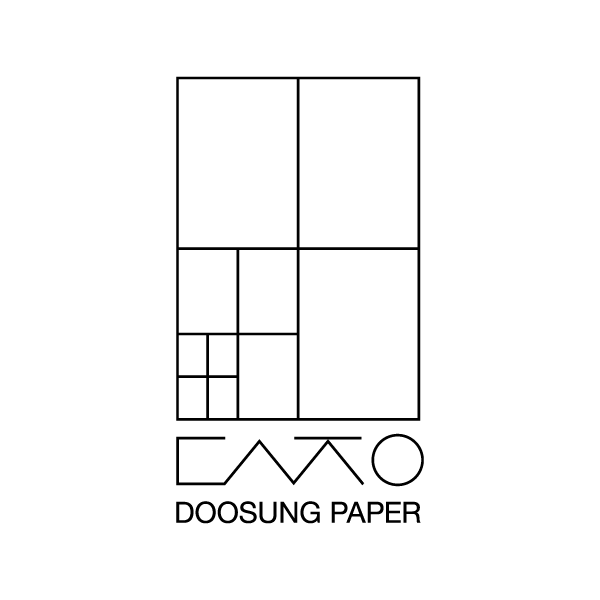Design History Society of Korea
History is the meaning created by a series of events. The small and trivial things we deal with now are clues to reflect on, point out, and look forward to our lives and cultures. The Korean Society of Design History observes and records people, objects, and phenomena surrounding design, and talks about beyond together. Share your thoughts and experiences. All of our daily activities related to design are the subjects and methods of research on design history. If you record, share, and mean the process and the result, it gathers and becomes history.
Office of Design History Society of Korea
Room 1203, Hongik University, 94, Wowsan-ro, Mapo-gu, Seoul
Postal Code. 04066
E-mail: k.designhistory@gmail.com
- 2021 6.30 The 2nd Quarter Regular Board Meeting and Provisional General Meeting Online Conference (Zoom)
- 2021 5.22, 5.29, 6.5 The 3rd Conference: Re-read Korean Design History Online Conference (Zoom)
- 2021 2.28 'Extra Archive', Vol. 1, 2, Published Corpus Publications
- 2021 2.00 The 1st Quarter Regular Board Meeting Online Meeting (Zoom)
- 2021 1.1-1.14 Special Exhibition, [ not only but also ] 17717 (Sungbuk)
- 2021 1.00 Nonprofit Organization Registration Mapo (Seoul)
- 2020 12.28. The 1st Regular General Meeting Online Meeting (Zoom)
- 2020 12.5, 12.12, 12.19 The 2nd Conference: Two Doors, An Unspecified Number of Experiences, Y's Methods Online Conference (Zoom)
- 2020 11.20. The 4th Quarter Regular Board Meeting Agio (Jongro)
- 2020 10.24. Lecture Series 4. Argument on Form of North Korean Chosunwha in Late 1950s Online Lecture (Zoom)
- 2020 8.18. The 3st Quarter Regular Board Meeting Online Meeting (Zoom)
- 2020 7.28. Round Table, Inauguration of the Design History Society of Korea wrm (Mapo)
- 2020 6.13, 6.20, 6.27 The 1st Conference: Design History Research - Archive for Design, Design through Archive Online Conference (Zoom)
- 2020 5.13. The 2nd Quarter Regular Board Meeting Online Meeting (Zoom)
- 2020 00.00 Lecture Series 3. Pizzas for the People (Kim Hwang) Seoul National University of Science and Technology
- 2020 2.14. The 1st Quarter Regular Board Meeting Room 727, Hongmoonkwan, Hognik University
- 2019 12.30 - 1.14 Exhibition, [ Design Peace Treaty ] Yoon Design Gallery (Mapo)
- 2019 00.00 Lecture Series 2. Architecture in North Korea (Im Dongwoo) Room 625, Hongmoonkwan, Hognik University
- 2019 8.14. Inaugural Meeting Room 625, Hongmoonkwan, Hognik University
- 2019 00.00 Lecture Series 1. Industrial Design in North Korea (Choi Heeseon) Room 725, Hongmoonkwan, Hognik University
- 2019 7.00. The 2nd Foundation Meeting AGI Society (Seodaemoon)
- 2019 7.00. The 1st Foundation Meeting AGI Society (Seodaemoon)
- 2019 6.00. Organizer Meetinig Cafe Reference (Mapo)
-
Article 1. Name of the Organization
-
The name of the organization shall be "Design History Society of Korea" in English.
-
The Society shall have its registered headquarter office in Seoul. The organization may establish branch offices, other liaison offices at any locations in or outside Seoul upon resolution by the board members.
-
The objective of Society is to engage in the following activities: mainly focusing on microscopic research or practice through writing, exhibition, lecture, publishing, or other contributions. We focus on anything that might have a critical value to set our design history.
-
To achieve the purpose of Paragraph 3, the Society will carry out the following activities.
-
Academic conference
-
Journal publication
-
Academic activities related to the purpose of Society such as exhibitions, publications, education, lectures, etc.
-
Installation and operation of other affiliated research groups or special committees
-
Other activities necessary to achieve the purpose
-
Academic conference
-
The name of the organization shall be "Design History Society of Korea" in English.
-
Article 5. Qualifications for Membership
-
A member of Society shall be an individual or group who agrees with the purpose of the Society's establishment. Applicants can apply with recommendations from at least two references amongst full members. Membership will be granted to them with the approval of board members.
-
We have two types of full membership, regular members (individual members, group members) and associate members. Individual membership is divided into two. One is General, and the other is Honorary. Full members fulfill all or part of the obligations specified in Paragraph 8. Full membership is downgraded to an associate member if one does not fulfill Article 7 (Obligations) for more than 6months. An associate member is excluded from Article 8 (Rights). The board members determine membership dues at the general meeting.
-
General Member: An individual or group of research achievements and has a master's degree or higher in design, history, aesthetics, arts, or an adjacent field of study.
-
Honorary Member: A remarkable individual or organization played a significant contribution to Society. It is needed to be approved by the General Meeting by the recommendation of the board members.
-
General Member: An individual or group of research achievements and has a master's degree or higher in design, history, aesthetics, arts, or an adjacent field of study.
-
Full members have the obligations below.
-
Compliance with the Society's articles of incorporation and regulations
-
The duty to participate in various purpose projects hosted and organized by Society and to make efforts to develop Society
-
Implementation of resolutions of the general meeting and the board members
-
Payment of dues and other fees
-
Compliance with the Society's articles of incorporation and regulations
-
Full members have the right to participate in the operation of the plenary session through the general meeting. Honorary members may attend and speak at the general meeting, but do not have the right to vote. Group members elect one representative and exercise their rights through that representative. Full members have the right to receive notifications and participate in activities hosted by the organization. Also, full members have the right to be provided with other information, including regular journals published by the Society.
-
Members can freely withdraw their membership by submitting a withdrawal form to Society. However, in the case of voluntary removal, annual membership fees and the admission fee that previously paid will not be refunded.
-
The Society may impose rewards and penalties on members concerning academic activities.
-
As members, those who have contributed to society can be rewarded by the resolution of the board members.
-
A member who violates against the purpose of Society or does an act that causes damage to the honor and prestige, or fails to fulfill the obligations of Article 7 may be dismissed or reprimanded by the Head of Society by decision of the board members at the general meeting.
-
As members, those who have contributed to society can be rewarded by the resolution of the board members.
-
A member of Society shall be an individual or group who agrees with the purpose of the Society's establishment. Applicants can apply with recommendations from at least two references amongst full members. Membership will be granted to them with the approval of board members.
-
Article 11. Type and number of Board Members
-
The Society has the following board members and officers.
-
One Chairman (hereinafter referred to as the Head)
-
Up to 30 directors (1 chairman, 2 vice presidents, 2-4 policy directors, 2-4 academic directors, 2-4 publishing directors, 2-4 educational directors, 2-4 exhibition directors, and 1-2 promotion directors, 2-4 international exchange directors.)
-
2 auditors
-
Etc.: When branches are established, one branch head (vice-president level) can be appointed for each branch. The branch head is elected at the general meeting by a resolution of the board members.
-
One Chairman (hereinafter referred to as the Head)
-
The Society appoints Board Members according to the following.
-
Board Members are elected at the General Meeting.
-
The replacement of the board members must be made in two months from the date of the vacancy.
-
The next presidential election process is needed to be done before six months expiration of the present head's term by forming an election committee.
-
The election of new board members must be done by two months before the end of the term.
-
Board Members are elected at the General Meeting.
-
When a board member has committed any of the following acts, he or she may be dismissed after a resolution of the general meeting.
-
Actions that violate the purpose of the society
-
Disputes between executives, accounting fraud, or significant unfair behavior
-
An act that interferes with the work of the society
-
Actions that violate the purpose of the society
-
The terms of office of officers are as follows.
-
The term of office of executives is two years and may be reappointed. The president may be reappointed once.
-
The commencement and termination of the duties of the appointed executives is the same as Article 35 (Fiscal Year).
-
The term of office of an officer who takes office by supplementary election shall be the remaining period of the predecessor.
-
The term of office of executives is two years and may be reappointed. The president may be reappointed once.
-
Executives perform the following duties.
-
The president represents the society, oversees the business of the plenary session, and becomes the chairman of the general meeting and the board of directors.
-
Directors attend the board of directors to make decisions on the affairs of the plenary session, and handle matters delegated by the board of directors or the chairman.
-
The auditor performs the following duties.
1) To appreciate the financial situation of the society
2) To audit the operation of the general meeting and the board of directors and matters related to their business
3) Requesting correction from the board of directors or the general meeting and reporting it to the competent authority when it is found that there is any irregularity or unfairness as a result of the audit.
4) Requesting a convocation of the general meeting or the board of directors when necessary for a correction request and report
5) To state an opinion to the general meeting, the board of directors, or the chairman on the financial situation and business of the society
-
The president represents the society, oversees the business of the plenary session, and becomes the chairman of the general meeting and the board of directors.
-
When it is necessary to act on behalf of the president, the following shall be followed.
-
When the chairman has an accident, the vice-chairman will act as an emergency agent.
-
When the chairman is in vacancies, the vice-chairman who acts on behalf of the board of directors must go through the procedure for selecting the president without delay.
-
The board of directors convened by a majority of current directors elects the chairman under the chairmanship of the vice chairman with the approval of a majority of the attending directors.
-
When the chairman has an accident, the vice-chairman will act as an emergency agent.
-
The Society has the following board members and officers.
-
Article 17. Organization of the General Assembly
-
The General Assembly is the highest voting body of the Society and is composed of members.
-
The types and convocation of the general meeting shall be as follows.
-
The general meeting is divided into a regular general meeting and an extraordinary general meeting, and the president convenes them.
-
Regular general meetings are held within two months of the start of each fiscal year, and extraordinary general meetings are convened when the president deems necessary.
-
The convocation of a general meeting shall be notified to each member 7 days before the commencement of the meeting by the chairman specifying the agenda, date, and place of the meeting.
-
The general meeting is divided into a regular general meeting and an extraordinary general meeting, and the president convenes them.
-
The convocation of a general meeting that does not fall under Article 18 above shall follow.
-
The president shall convene a general meeting within 14 days from the date of request for convocation when there is a request for a convocation that falls under any of the following subparagraphs:
1) When a majority of the current directors present the purpose of the meeting and request a convocation
2) When the auditor requests a convocation pursuant to Article 15, Paragraph 3, Item 4
3) When more than 1/3 of regular members present the purpose of the meeting and request a convocation
-
If the convocation of the general meeting is vacant or avoids it, and it is impossible to call the general meeting for more than 7 days, the general meeting may be called with the approval of a majority of the executives or more than one third of the full members.
-
The general meeting pursuant to the provisions of paragraph 2 above shall elect the chairman under the chairmanship of the vice-chairman or the oldest of the directors present.
-
The president shall convene a general meeting within 14 days from the date of request for convocation when there is a request for a convocation that falls under any of the following subparagraphs:
1) When a majority of the current directors present the purpose of the meeting and request a convocation
2) When the auditor requests a convocation pursuant to Article 15, Paragraph 3, Item 4
3) When more than 1/3 of regular members present the purpose of the meeting and request a convocation
-
The quorum for the resolution of the agenda of the General Assembly shall be as follows.
-
The general meeting considers the attendance of a majority of members and votes with the approval of a majority of the attending members.
-
A member's voting rights may be delegated to other members attending the General Assembly. In this case, a power of attorney specifying the person to be delegated must be submitted to the society secretariat before the commencement of the general meeting.
-
The general meeting considers the attendance of a majority of members and votes with the approval of a majority of the attending members.
-
The General Assembly shall resolve the following matters
-
Matters concerning the election and dismissal of executives
-
Matters concerning the dissolution of the society and amendment of the articles of incorporation
-
Matters concerning the disposal and acquisition of corporate property and borrowing of funds
-
Approval of budget and settlement
-
Approval of business plan
-
Other important matters and matters submitted by the board of directors
-
Matters concerning the election and dismissal of executives
-
When a member falls under any of the following subparagraphs, he or she cannot participate in the resolution.
-
When deciding on matters related to oneself in the matter of election or dismissal of executives
-
When the interests of oneself and the society conflict due to matters related to the receipt of money and property, lawsuits, etc.
-
When deciding on matters related to oneself in the matter of election or dismissal of executives
-
The General Assembly is the highest voting body of the Society and is composed of members.
-
Article 23. Composition of the Board of Directors
-
The board of directors consists of a chairman and a director.
-
The division and convocation of the board of directors is as follows.
-
The board of directors is divided into regular and temporary boards, and is convened by the president.
-
Regular board meetings are convened once a quarter, and temporary board meetings are convened when deemed necessary.
-
For the convocation of the board of directors, the chairman shall specify the agenda, date, and place of the meeting and notify each director and auditor 7 days before the start of the meeting.
-
The board of directors may decide only on matters notified in paragraph 2. However, when a majority of the attending directors approve, even matters not notified may be rejected and decided.
-
The board of directors is divided into regular and temporary boards, and is convened by the president.
-
Classification and convocation of the board of directors that do not fall under Article 24 above are as follows.
-
When there is a request for a convocation that falls under any of the following subparagraphs, the chairman shall convene the board of directors within 20 days of the request for convocation.
1) When a majority of the current directors present the purpose of the meeting and request a convocation
2) When the auditor requests a convocation pursuant to Article 15 (3) 4
-
If the convocation of the board of directors is unable to convene the board of directors for more than 7 days due to the vacancy or avoidance of the board of directors, the board of directors may be called with the approval of a majority of the current directors.
-
The board of directors under paragraph 2 above shall elect the chairman under the chairmanship of the oldest among the directors present.
-
When there is a request for a convocation that falls under any of the following subparagraphs, the chairman shall convene the board of directors within 20 days of the request for convocation.
1) When a majority of the current directors present the purpose of the meeting and request a convocation
2) When the auditor requests a convocation pursuant to Article 15 (3) 4
-
If a written resolution is required other than the convocation of the board of directors, the following shall apply.
-
Among the matters to be referred to the board of directors, the chairman may decide in writing for minor matters or matters requiring urgent matters. In this case, the chairman shall report the result to the next board of directors.
-
When a majority of the current directors request that the board of directors submit a request to the written resolution under paragraph 1 above, the chairman shall comply with it.
-
Among the matters to be referred to the board of directors, the chairman may decide in writing for minor matters or matters requiring urgent matters. In this case, the chairman shall report the result to the next board of directors.
-
The quorum for resolution of agenda items of the board of directors shall be as follows.
-
The board of directors considers the attendance of a majority of the current directors and decides with the approval of a majority of the attending directors. However, in case of a temporary or negative number, the chairman shall decide.
-
The voting rights of the board of directors cannot be delegated.
-
The board of directors considers the attendance of a majority of the current directors and decides with the approval of a majority of the attending directors. However, in case of a temporary or negative number, the chairman shall decide.
-
The board of directors deliberates and decides on the following matters.
-
Matters related to business execution
-
Matters concerning the operation of the business plan
-
Matters concerning the preparation of budget and settlement statements
-
Matters concerning amendment of the articles of incorporation
-
Matters related to property management
-
Preparation of an agenda to be referred to the general meeting
-
Matters delegated by the General Assembly
-
Matters belonging to the authority pursuant to the articles of incorporation
-
Other matters submitted by the chairman as important for the operation of the society
-
Matters related to business execution
-
The board of directors consists of a chairman and a director.
-
Article 29. 학술대회 개최
-
학회는 학술대회를 다음과 같이 개최한다.
-
정기학술대회: 매년 2회(상반기, 하반기) 개최한다. 단, 이사회의 결의를 거쳐 그 횟수를 확대 또는 축소할 수 있다.
-
특별학술대회: 필요에 따라 이사회의 결의에 의해 수시로 개최할 수 있다.
-
정기학술대회: 매년 2회(상반기, 하반기) 개최한다. 단, 이사회의 결의를 거쳐 그 횟수를 확대 또는 축소할 수 있다.
-
학회는 학술대회를 다음과 같이 개최한다.
-
정기 학술지: ‘엑스트라 아카이브 Extra Archive’를 주 제목으로 하고, ‘디자인사연구 The Journal of Design History’를 부 제목으로 하는 학술지를 연 2회(매년 8월 31일, 2월 28일) 발간한다. 단, 이사회의 결의를 거쳐 그 횟수를 확대 또는 축소할 수 있다.
-
특별 학술지: 필요에 따라 이사회의 결의에 의해 수시로 발간할 수 있다.
-
정기 학술지: ‘엑스트라 아카이브 Extra Archive’를 주 제목으로 하고, ‘디자인사연구 The Journal of Design History’를 부 제목으로 하는 학술지를 연 2회(매년 8월 31일, 2월 28일) 발간한다. 단, 이사회의 결의를 거쳐 그 횟수를 확대 또는 축소할 수 있다.
-
The board of directors deliberates and decides on the following matters.
-
Matters related to business execution
-
Matters concerning the operation of the business plan
-
Matters concerning the preparation of budget and settlement statements
-
Matters concerning amendment of the articles of incorporation
-
Matters related to property management
-
Preparation of an agenda to be referred to the general meeting
-
Matters delegated by the General Assembly
-
Matters belonging to the authority pursuant to the articles of incorporation
-
Other matters submitted by the chairman as important for the operation of the society
-
Matters related to business execution
-
학회는 학술대회를 다음과 같이 개최한다.
-
Article 31. Editorial Committee
-
In order to improve the professionalism and fairness of the academic business of the society, especially the publication of academic journals and holding conferences, an editorial committee is established, and its establishment and operation are as follows.
-
The editorial committee selects all the submitted articles (thesis, non-dissertations) conducted through academic conferences and academic journals, and deliberates and decides on the academic event plan.
-
The editorial board is composed of three or more members, and the qualifications must be those with experience in at least one of the following items.
1) Professors or full-time researchers at universities and research institutes who have academic achievements in design, history, aesthetics/arts or adjacent academic fields
2) Those who have published research papers in international and national academic conferences and journals or have outstanding academic writing activities
3) Holders of related degrees
4) Others with qualifications equivalent to or higher than each of the above items
-
The editor-in-chief is appointed by the chairman after a resolution by the board of directors among regular members.
-
The meeting of the editorial committee holds two regular meetings and extraordinary meetings as necessary in accordance with the journal publication schedule.
-
Other detailed rules regarding the operation of the editorial committee can be separately stipulated in the
.
-
The editorial committee selects all the submitted articles (thesis, non-dissertations) conducted through academic conferences and academic journals, and deliberates and decides on the academic event plan.
-
An ethics committee is established to deliberate and judge the ethical issues related to the academic business of the society, especially the publication of academic journals and the holding of academic conferences, and its establishment and operation are as follows.
-
The Ethics Committee verifies the research ethics of all published manuscripts (thesis, non-thesis) related to academic activities such as academic conferences and academic journals.
-
The composition of the ethics committee is commissioned by the chairman after a resolution of the board of directors among regular members recognized as having strict ethical standards. Members of the Ethics Committee must have no history of ethics violations in other organizations or organizations. The qualification and commissioning method are the same as in Article 31 above.
-
Detailed rules for the operation and deliberation of the ethics committee can be separately stipulated in
.
-
The Ethics Committee verifies the research ethics of all published manuscripts (thesis, non-thesis) related to academic activities such as academic conferences and academic journals.
-
In order to improve the professionalism and fairness of the academic business of the society, especially the publication of academic journals and holding conferences, an editorial committee is established, and its establishment and operation are as follows.
-
Article 33. Research institutes and affiliated organizations
-
The Society may install and operate other affiliated organizations such as research institutes to promote the purpose of the Society's projects specified in Chapter 1, Articles 3 and 4. However, the installation and operation are as follows.
-
All research institutes and other affiliated organizations to be established must contribute to promoting the regular academic activities of the society, and can be dismantled through a resolution of the board of directors when it is judged that there is a risk of negatively affecting the performance of its own business.
-
In the case of installing or abolishing other affiliated organizations such as all research institutes, the board of directors decides on major issues such as the name of the installation organization, purpose of installation, project, organization, etc. shall.
-
The person in charge of the research institute or affiliated organization shall report all matters related to the operation, such as major business plans, implementation methods, and project promotion results, at regular board meetings.
-
Details on the operation of research institutes or affiliated organizations can be stipulated in the .
-
All research institutes and other affiliated organizations to be established must contribute to promoting the regular academic activities of the society, and can be dismantled through a resolution of the board of directors when it is judged that there is a risk of negatively affecting the performance of its own business.
-
The Society may install and operate other affiliated organizations such as research institutes to promote the purpose of the Society's projects specified in Chapter 1, Articles 3 and 4. However, the installation and operation are as follows.
-
Article 34. Income
-
The society's income is covered by membership dues, donations, and other income. The society's income consists of general income, purpose income, and other income, and is based on the following.
-
General Income: Member dues (admission fee, annual fee).
-
Purpose income: Income related to the purpose of the society's project as defined in Chapter 1, Articles 3 and 4.
1) Sales of academic activity related publications or products
2) Academic activity related event participation fee income
3) Other income related to academic activities
-
Other Income: Income other than the target income.
1) Development fund, support, donation
2) Research subsidies from public institutions
3) Interest income
4) Income not included above
-
General Income: Member dues (admission fee, annual fee).
-
The society's income is used only for the purpose of the project and expenses necessary for it, and is not distributed to members in any form.
-
The fiscal year of the society is from January 1st to December 31st every year.
-
The budget for income and expenditure of the society is organized within two months of the start of each fiscal year, and is determined by the approval of the general meeting through the resolution of the board of directors.
-
The society must prepare a statement of accounts within 4 months after the end of each fiscal year.
-
The audit must be conducted at least once a year in accordance with the fiscal year deadline.
-
Disclosure of the accounting for the conference is as follows.
-
The society's budget and accounts are disclosed according to a method separately determined by the board of directors.
-
The amount of annual donation and the results of its use are disclosed at least once a year through the website.
-
The society's budget and accounts are disclosed according to a method separately determined by the board of directors.
-
Remuneration can be paid to executive directors and employees who are in charge of the operation of the project, but other directors are not paid in consideration of the specificity of the conference project. However, actual expenses necessary for the performance of the work may be paid.
-
The society's income is covered by membership dues, donations, and other income. The society's income consists of general income, purpose income, and other income, and is based on the following.
-
Article 42. Secretariat
-
The establishment and operation of the secretariat shall be as follows.
-
Under the direction of the president, a secretariat is established to handle the affairs of the society.
-
The secretariat may have at least one secretary-general, two or more secretary-generals, and necessary staff.
-
The secretariat staff is appointed and dismissed by the chairman.
-
Other matters related to the operation of the secretariat organization shall be determined separately through the resolution of the board of directors.
-
If it is necessary to establish a branch office or branch, employees may be appointed to the branch office or branch after a resolution by the board of directors.
-
Under the direction of the president, a secretariat is established to handle the affairs of the society.
-
The establishment and operation of the secretariat shall be as follows.
-
Supplementary Article 1. Dissolution
-
The dissolution of the society is as follows.
-
The dissolution of the society is approved by the approval of more than 2/3 of the attending members at a general meeting attended by 2/3 or more of the regular members, and the fact is reported to the competent authority.
-
Residual property resulting from dissolution belongs to the state, local governments, or other non-profit corporations with similar purposes to the association.
-
The dissolution of the society is approved by the approval of more than 2/3 of the attending members at a general meeting attended by 2/3 or more of the regular members, and the fact is reported to the competent authority.
-
Amendments to the articles of incorporation are resolved with the approval of 1/2 or more of the attending members at a general meeting in which 1/2 or more of the full members attended, report this to the competent authority, and obtain permission.
-
Matters necessary for the operation of the society other than those specified in these articles of incorporation shall be determined by the bylaws after a resolution by the board of directors.
-
The dissolution of the society is as follows.
-
Article 46. Founder's name and seal and enactment
-
In order to establish an academic society, these articles of incorporation are drawn up and signed by all founders. The date of enactment of the articles of incorporation shall be the time of the name and seal.
-
Acts performed by promoters, etc. in the process of implementing this Articles of Incorporation shall be deemed to have been performed in accordance with these Articles of Incorporation.
-
The effective date of this Articles of Incorporation shall be regarded as the date on which permission from the competent authority is obtained, and the date on which it officially took effect.
-
In order to establish an academic society, these articles of incorporation are drawn up and signed by all founders. The date of enactment of the articles of incorporation shall be the time of the name and seal.
-
Established on August 00, 2019 (date of inaugural general meeting)
-
History
Articles
Chapter 1. General Provisions
Chapter 2. Membership
Chapter 3. Board Members
Chapter 4. General Meeting
Chapter 5. Board Meeting
Chapter 6. Conference and Journal
Chapter 7. Editorial Committee and Ethics Committee
Chapter 8. Research Groups and Attached Organizations
Chapter 9. Property and Account
Chapter 10. Office
Chapter 11. Supplementary Rules
Additional Clause
Legislation and Revision





